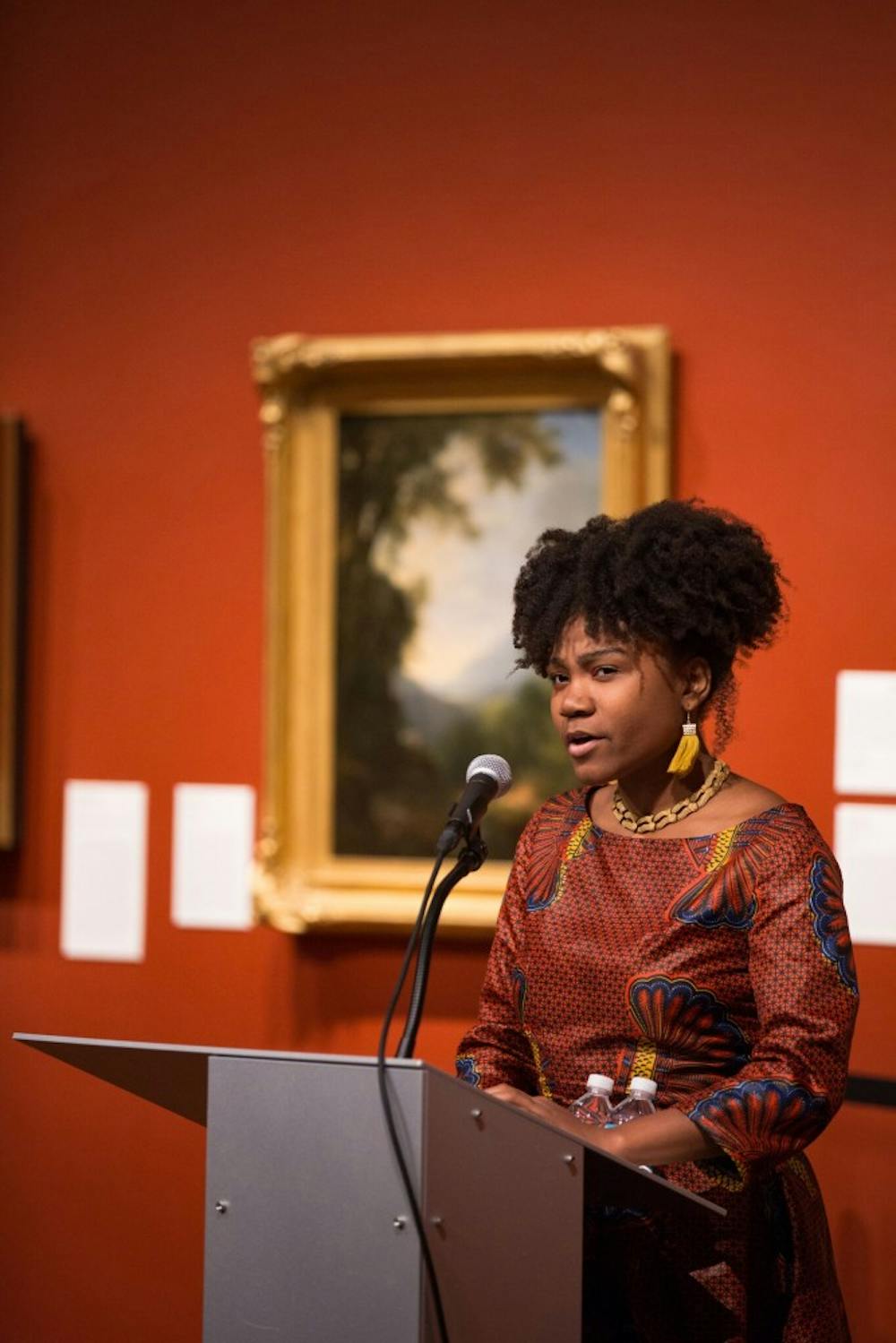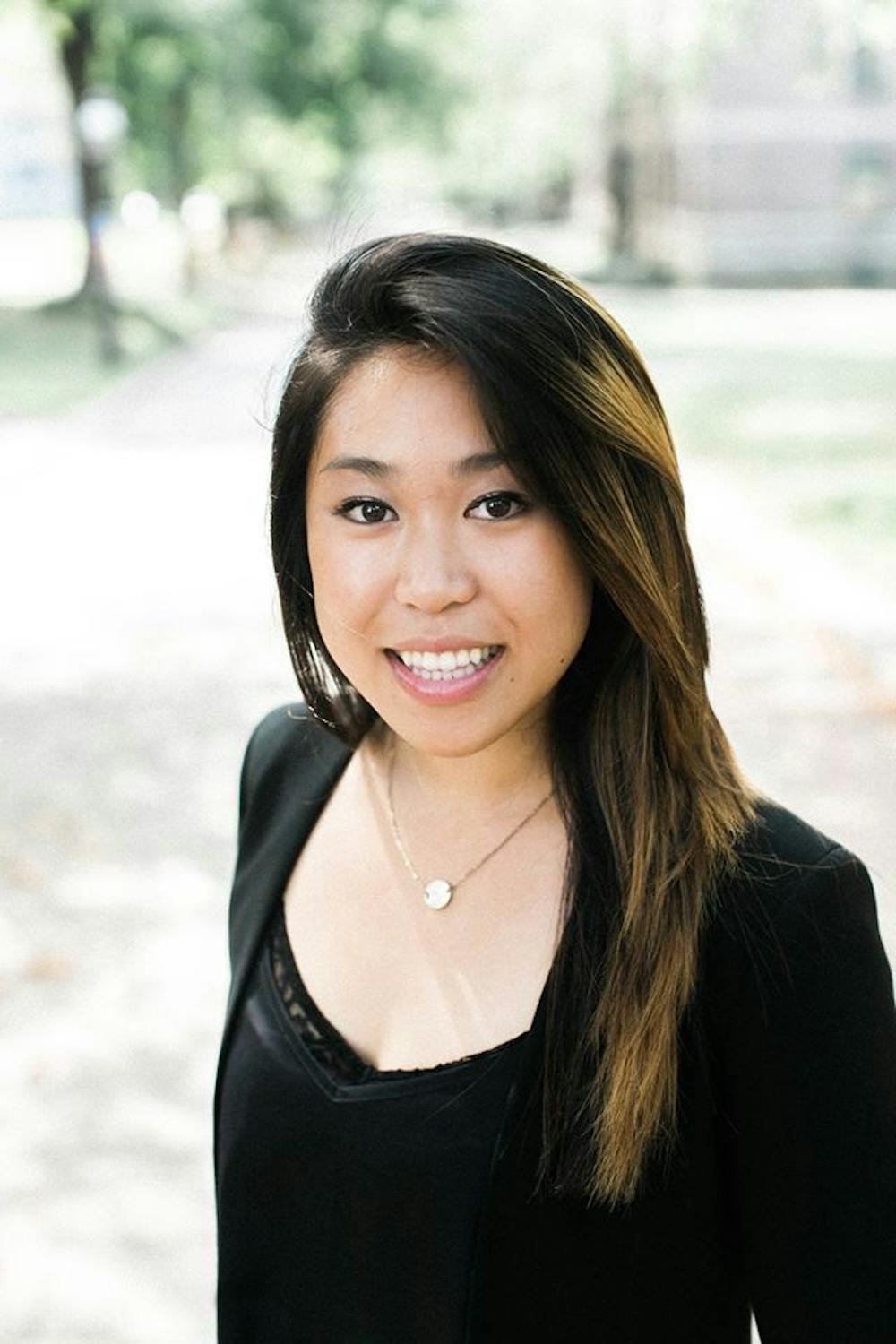The Daily Princetonian spoke with Rachel Yee ’19, a woman of color who is the president of the Undergraduate Student Government, about her role on campus, mentorship for female leaders, and the need for diversity in leadership positions.
Daily Princetonian: What does it mean for you to be the USG president, as a woman of color?
Rachel Yee: I think that it’s just one more step towards moving in the right direction. In the past four years that I’ve been here, I’ve really seen a dramatic increase in the [diversity] of leadership on campus. Back when I entered in 2014, when I was a first-year, most of the major leadership positions were held by men — some of color, but mostly they were occupied by men. In the last three or four years, we’ve seen an increase [in diversity]. I’d like to think that I’m part of a bigger change.
Representation and visible public representation as a woman of color is super important. When I was growing up, there were very few Asian American role models to look up to. It was pretty much segmented to maybe Brenda Song and Lucy Liu. In the public media, there weren’t many people that looked like me that I felt I could relate to.
I think having women of color in leadership positions encourages other women of color to believe that they can also achieve or be in those leadership positions. Pattern-matching is important. Sociology shows that in hiring practices, or even choosing out of applications, people tend to choose those that are similar to themselves. Having people who are diverse, especially women of color, in leadership positions opens up the door for more women of color to gain access to leadership positions.
DP: How do you feel about female leadership at Princeton in general, considering the fact that the University only went co-ed in the recent past?
Yee: I think that it’s indicative of the major emphasis on empowering women and encouraging women — I believe this is the fourth year of the Women’s Leadership Task Force. This intentional effort to encourage women and give them the support to run for leadership positions is pretty incredible. Even looking at the eating club presidents, nine out of 11 of them are women, which is testament to how the University has been changing.
I think it’s an important dignifier when we have women in top leadership positions at Princeton. We’re a highly respected university; a lot of other universities are paying attention to our leadership and what kind of values and precedence that we set. Having women in leadership at Princeton is important, especially with the current #MeToo and Time’s Up movements.

DP: As we move forward, how do you see the future of women leadership at Princeton evolving?
Yee: I think that over time, more women will fill leadership positions. I’m a sociology major, and I was reading some studies about women’s leadership. A lot of the characteristics associated with leadership are qualities that women possess — a lot of them are more conducive to promoting good team dynamics and more understanding. It really promotes and breeds good team dynamics when you have a woman in the top leadership position. And I have a list of all the past USG presidents: Before Ella Cheng ’16 was elected, it [had been] 13 years [since] the USG president was a woman. It was Myesha Jemison ’18, and the year before that Aleks Czulak ’17, and the year before that Ella. Before 2002, you have to go back to 1990 when Patricia Garcia-Monet ’92 was president.
I really hope that in the future, we can create a network of women that can continue to provide mentorship. It can be really intimidating running as a woman, because women are criticized more and subjected to different critiques that men are not. Mentorship from alumni or women who have been through similar things is important. That’s something I want to establish before I graduate.
I feel optimistic about this. For example, the Company of Female Founders was founded as a subset of E-Club this year, and that’s one of many clubs that are popping up. Women more than ever are starting to band together to lift other women up, which is an incredible thing. More and more, we’re going to see more of these women-centered networks.


The Daily Princetonian spoke with Myesha Jemison ’18, who was the first black female president of the Undergraduate Student Government last term, about her role on campus, intersectional representation, and the future of women's leadership at the University.
DP: What did it mean to you to be the first black female USG President?
Myesha Jemison: It was definitely a lot to digest. It was really important to me to have this kind of representation, not only in USG, but in leadership at Princeton and overall. To be both black and female, to have those two identities intersect in such a visible platform, was exciting and overwhelming. I felt, in a lot of ways, that people expected me to represent both of those identities and saw them before they saw who I was as a person or some of the initiatives I wanted to get across, even the things I was really passionate about.
In terms of the history of Princeton, it’s becoming increasingly more important to me that I am a black woman in the position. Now that I have talked to a lot of younger black women on campus, or some of the high school students I end up showing around campus, to have them say that they felt more welcome and more at peace about their decision to come Princeton, just felt that they had a place on this campus because they saw me in this role, they saw me give their Class of 2021 speech, was what I think really sold it for me and let me know that the impact that it had immediately but also in the history of Princeton.
I don’t think a lot of people know about the platform. I think some people know kind of colloquially, but I don’t know necessarily how they perceive me on campus. I do recognize that this is an incredibly amazing opportunity, but also a really important goal and something to be managed responsibly.
Thinking more broadly about Princeton’s history, it kind of comes full circle a bit, but it wasn’t too long ago that Princeton first started admitting black women to this campus. To think that now I’m holding this position is exciting, but I’ve also said repeatedly that it seems overdue. It’s nice to finally have this, but it’s something that should have happened long ago.
DP: How do you feel about female leadership at Princeton in general, considering the fact that the University only went co-ed in the recent past?
Jemison: At least in my experience, the way that the University and especially the Women*s Center have been highlighting women’s leadership and the role that it’s had on this campus — but also the number of women in leadership on this campus — has become increasingly more visible. As someone who is a woman, and in that sense a bit marginalized, but also thinking about how I’m black — that is something I think about more often within the University in terms of women’s leadership, just to think about how those two identities intersect and how they intersect at Princeton. So not only do I think it’s important to have women’s leadership, but I think also some of these other marginalized identities that women have need to be at that forefront too. So I love to see the intersectionality and also enjoy seeing that recognized.
I also think about a lot of the women leaders on this campus, and whether they’ve been the presidents of eating clubs, like Folasade Runcie ’18 and Jade Williams ’18, or whether they’re leading a lot of social justice movements, like Maria Perales Sánchez ’18 and Wilglory Tanjong ’18, these are incredibly important roles that women have had and sometimes may not get highlighted as often. I guess to kind of sum that up, it’s great to see this women’s leadership, especially when it’s intersectional, and then I also think it’s important to highlight women whose work is incredibly important but their work doesn’t get recognized in the way that it should be.
DP: As we move forward, how do you see the future of women’s leadership at Princeton evolving?
Jemison: I definitely see it increasing. I think, especially at this time at Princeton, you’re seeing it more frequently than I might imagine in Princeton’s history, so I see that continuing. Also, my hope would be that some of the informal ways that women have led on this campus — the people who don’t have a particular role but are still leaders on this campus — will be highlighted in that fashion. I would hope that the University would support them in that and highlight their successes, and just the work they do off campus.
I also see it becoming more and more innovative and revolutionary. We’ve again seen that, particularly recently, in my own term I got a lot of comments that I was a political person because I was signing statements and working with the USG to pass resolutions to support students who are from Puerto Rico and the Virgin Islands, or to pass resolutions about stricter disciplinary action for professors and faculty involved with sexual assault, or signing statements about the University and in support of first-generation students, and these different issues that are happening not only on campus but nationwide. I hope that set a precedent not only for USG but just for women in general, thinking about not only the ways that they can lead on this campus, but the way they can be incredibly instrumental in engaging with the wider world. We kind of feel like we’re within the Princeton bubble, but the reality is that this bubble is much more permeable than we think, and it’s important to reach out to those different areas.
So I think again, I want to highlight some of the ways that has happened, not only as I’ve been president and restructured the Diversity and Equity Committee, or reached out to national initiatives and wrote statements with one or two other presidents around the country that were signed by hundreds of presidents to support DACA students — that’s something that’s been incredibly important to me and I would hope that other students would engage in that. I can also say that other students have engaged in that. I again bring up the students that I’ve already talked about — Maria Perales, who literally just sued the federal government! That’s the epitome of women’s leadership and excellence and activism and putting that all together. Wilglory Tanjong, who’s been an activist for education and social justice on campus, and around the country, and also thinking about Soraya Morales Nunez ’18 who’s been incredibly involved in Princeton Advocates for Justice and has worked on a variety of different efforts that engage with the national community. We need to be engaged in some things happening right in New Jersey, right in our own backyard.








